
During the summer of 1997, my wife and I picked up our 9-year-old daughter from a ballet camp in Carlisle, Pennsylvania, and drove to the nearby Gettysburg National Military Park, which they had never seen and I barely remembered from a boyhood visit. The park’s presentation of history left much to be desired. The visitor center’s small museum and the numerous monuments scattered across the battlefield conveyed a great deal about how the battle had been fought in July 1863, while offering almost no explanation of why the combatants were fighting. The park commemorated the Union’s greatest military victory, but its emotional centerpiece was the disastrous southern assault known as Pickett’s Charge, identified, in the romantic glow of nostalgia, as the “high-water mark” of the Confederacy. In labels accompanying the display of historic artifacts and images, the words valor and glory were almost always applied to soldiers who fought for the South, not for the Union.
That the place where the Civil War reached its turning point had become a shrine to the courage of those who fought to destroy the nation and preserve slavery should not have been a surprise. It has long been a commonplace that the South lost the Civil War but won the battle over historical memory. For decades, almost from the moment of surrender, the ideology of the Lost Cause shaped both popular and scholarly understanding of the conflict.
Esta historia es de la edición December 2023 de The Atlantic.
Comience su prueba gratuita de Magzter GOLD de 7 días para acceder a miles de historias premium seleccionadas y a más de 9,000 revistas y periódicos.
Ya eres suscriptor ? Conectar
Esta historia es de la edición December 2023 de The Atlantic.
Comience su prueba gratuita de Magzter GOLD de 7 días para acceder a miles de historias premium seleccionadas y a más de 9,000 revistas y periódicos.
Ya eres suscriptor? Conectar

Apocalypse, Constantly
Humans love to imagine their own demise.

A Palestinian American Sex and the City
Betty Shamieh's debut novel is a rebellious rom-com.
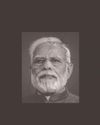
Modi's Failure
Why India is losing faith in its strongman leader
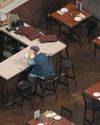
The Anti-Social Century
Americans are now spending more time alone than ever. It's changing our personalities, our politics, and even our relationship to reality.

The Wild Charity of Saint Francis
The guide we need, now that kindness is countercultural
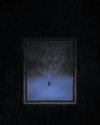
Where Han Kang's Nightmares Come From
In her novels, the South Korean Nobel laureate returns again and again to her countrys bloody past.
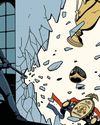
TROPHY HUNTERS
A GROUP OF CHILDHOOD FRIENDS PULLED OFF A STRING OF THE MOST AUDACIOUS SPORTS-MEMORABILIA HEISTS IN AMERICAN HISTORY. THEN THEY DID SOMETHING REALLY CRAZY.

THE NEW RASPUTINS
Anti-science mysticism is enabling autocracy around the globe.
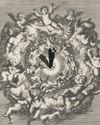
ARMY OF GOD
AMERICAN CHRISTIANS ARE EMBRACING A CHARISMATIC MOVEMENT KNOWN AS THE NEW APOSTOLIC REFORMATION, WHICH SEEKS TO DESTROY THE SECULAR STATE. Now THEIR WAR BEGINS.

WHAT NOT TO WEAR
The false promise of seasonal-color analysis